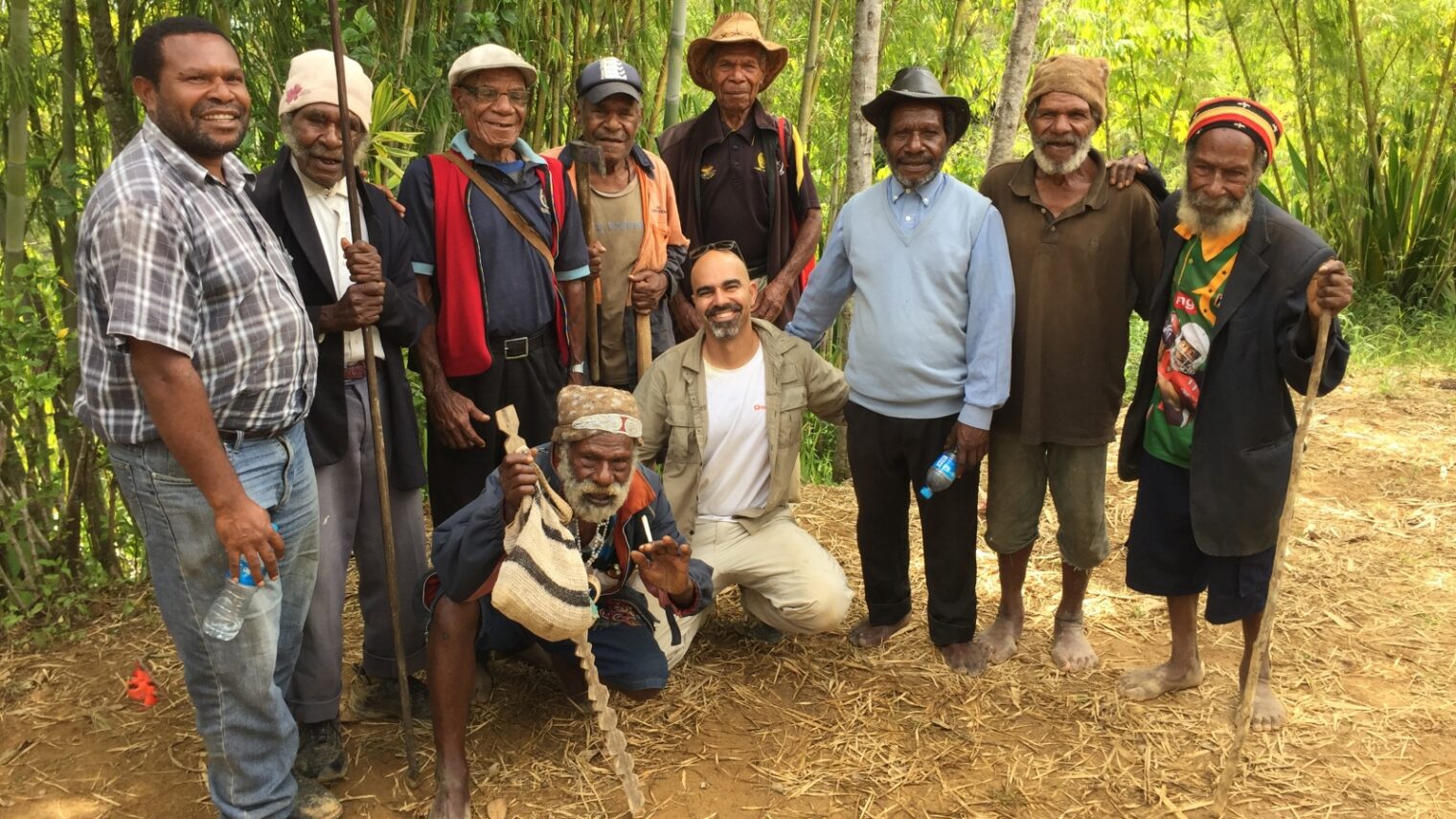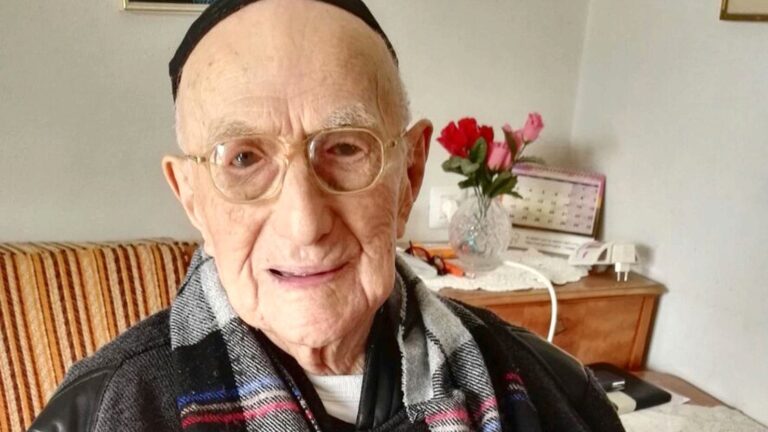On the remote South Pacific island nation of Papua New Guinea, the distinct languages spoken by more than 800 native tribes are fast disappearing — and taking their family stories with them into oblivion.
Golan Levi, user experience expert at Israel-based genealogical website MyHeritage, led a voluntary 20-day mission in March to record and preserve those stories for future generations.
“The core values of MyHeritage are helping people build, preserve and document family history, and enabling them to make discoveries about their family history through our cutting-edge technology and big-data capabilities with access to over six billion historical records from all around the world,” Levi tells ISRAEL21c.
Founded in 2003, MyHeritage has nearly 80 million registered members worldwide, 28 million family trees with 1.6 billion individual profiles, and hundreds of millions of family photos uploaded by people in 40 languages.
However, the indigenous peoples of Papua New Guinea do not have computers or phones. In fact, Levi and his colleagues spent time in two villages without running water, let alone electricity. The team of five (plus a guide) brought a generator to back up the information they recorded every night after conducting personal interviews. They braved nearly constant torrential rain, difficulty with transportation and issues with food.
And yet, says Levi, “Papua New Guinea seemed the most natural place to prove the point that no matter the color of our skin or where we live, deep down we are all basically the same and we all care very much about our families. Beyond any doubt, this point was proven.”
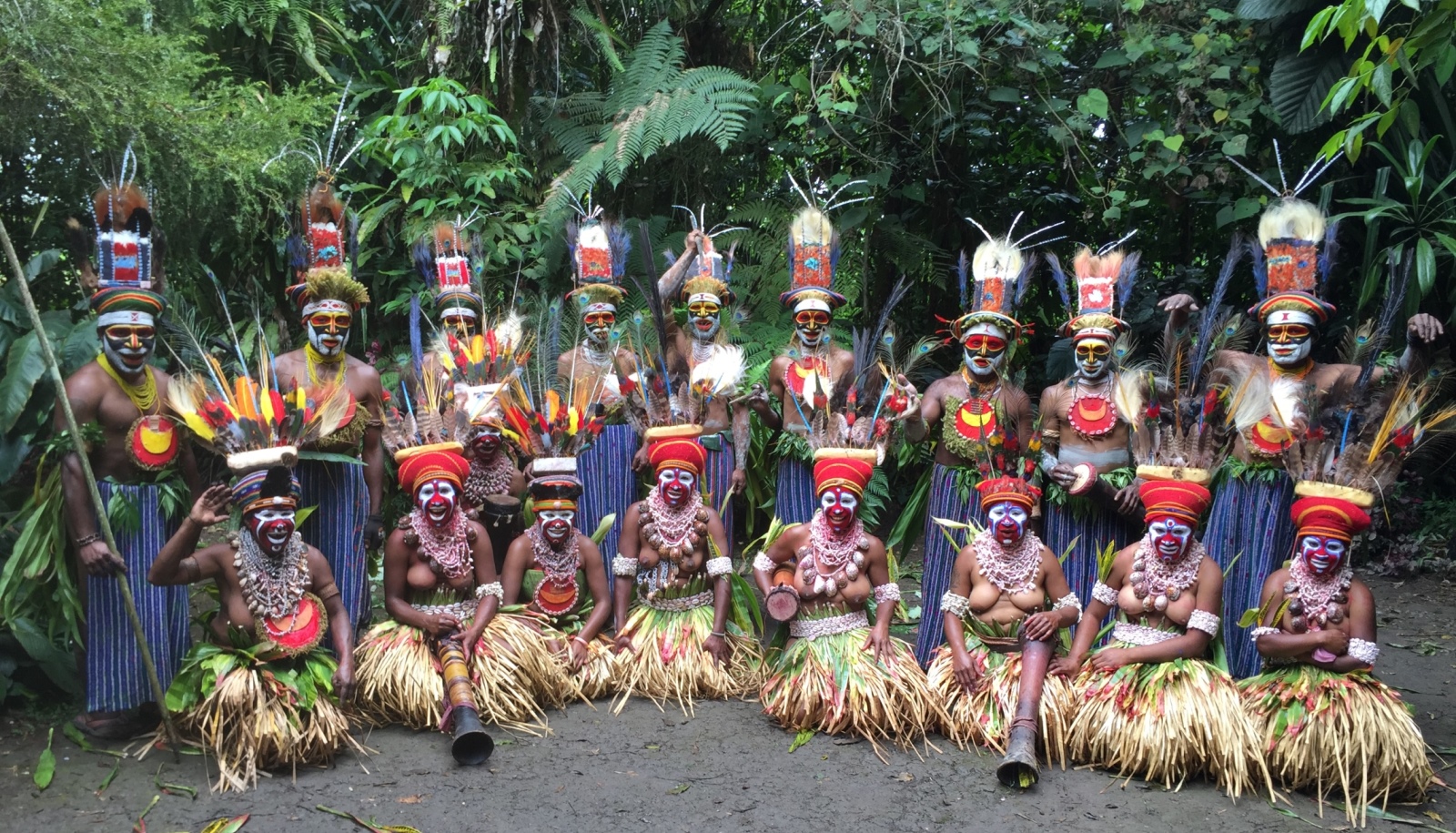
Working in an area near the river and another in the highlands, the MyHeritage crew – communicating mainly in English — learned that many indigenous tribes were cannibalistic until the arrival of Christian missionaries less than 100 years ago.
“A lot of people we met, around 50 or 60 years old, told us their grandparents were headhunters,” says Levi. “In the spirit house you were taught how to live according to tradition and go out and hunt people from rival tribes. For each skull you brought back you were entitled to marry one wife. Great warriors therefore had several wives.”
Even today, many tribesmen have a blend of pagan and Christian beliefs and are given both Christian and tribal names, Levi learned.
There were some emotional moments as well. “We got an elder panel together in the highland area, and asked about their childhood memories. Some of them recall bombings from World War II. Then, one of the elders saw our team member Tamar Friedland and said she reminded him of his daughter who died. He hugged her and started weeping.”
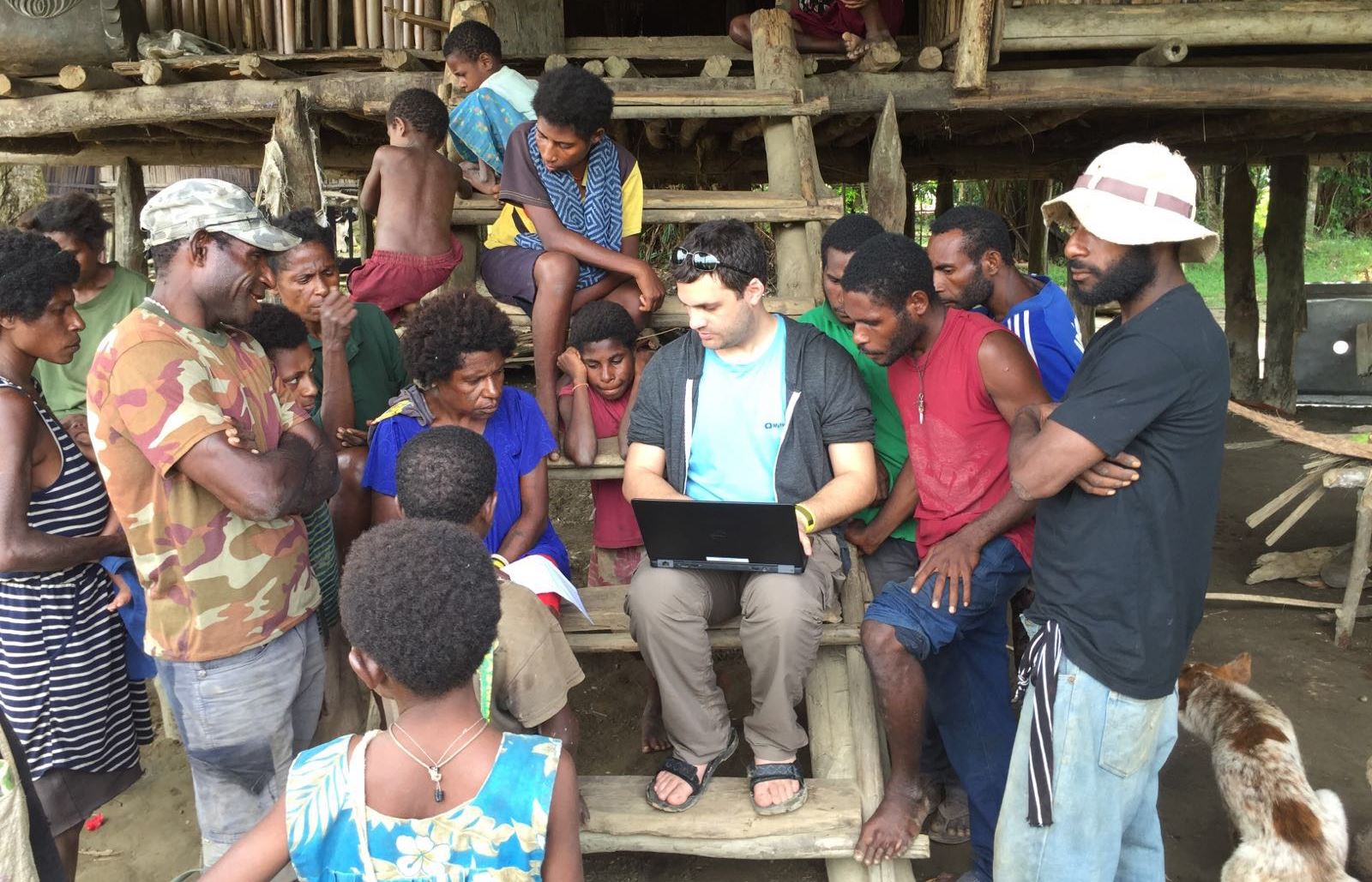
Friedland and Levi, along with MyHeritage employees Tal Pelli, Ohad Nitzan and Shahar Bitton, used the company’s Family Tree Builder program to document basic details on family history, lifestyle and rituals. They videotaped the interviews for the sake of future generations.
“We also took profile photos. This was critical because many of these people do not have a single photo of themselves to pass on to their descendants,” Levi says. They took along a Polaroid camera to take instant photos to give the interviewees as a souvenir, “something they really appreciated.”
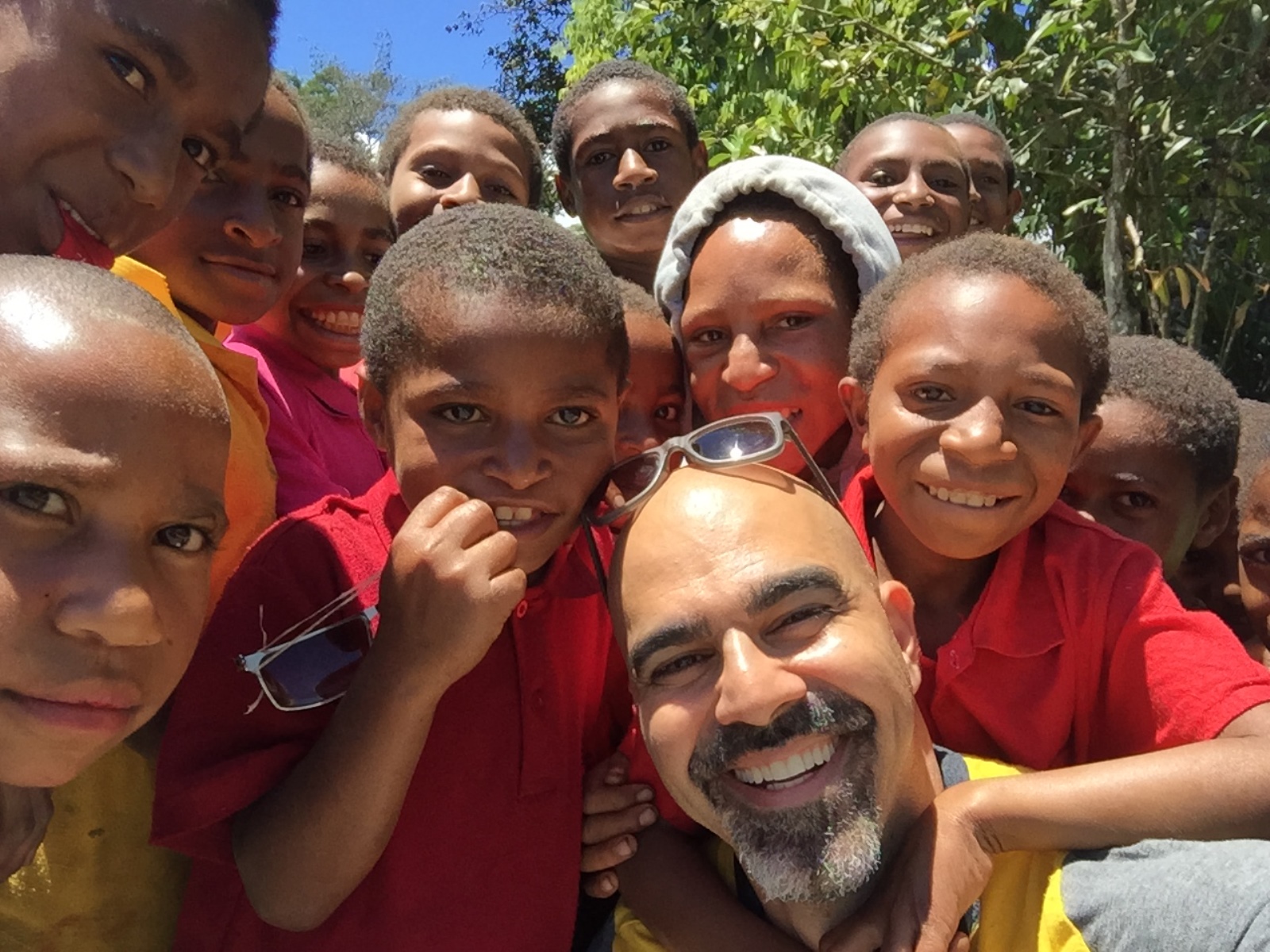
While many anthropologists have studied the disappearing culture of Papua New Guinea tribes, Levi says this was not the intent of the Israeli mission. “We are equipped to help them preserve something for the generations to come. Whether or not we have accessibility to technology, we are all entitled to tell our stories to our children and grandchildren.”
The mission would only have stayed a dream of Levi’s if not for the enthusiasm of MyHeritage CEO Gilad Japhet.
“I was lucky enough to work with indigenous communities as a site manager for big landscape projects in the past, and I sensed that the people I got to know so well unfortunately didn’t have access to their personal history,” Levi explains. “When I came to MyHeritage a little over two years ago, I realized we have the tools to do it and it only seemed fitting.”
Levi came to Japeth with this farfetched pitch and got an immediate thumbs-up.
“He realized it is urgent because their oral history is gradually getting lost. We can intervene and make a real difference.”
Making contact in Papua New Guinea proved difficult until a fellow employee mentioned to Levi that his friend Raz Cherbelis leads tours from Israel to Papua New Guinea and lived there for five years. The next time Cherbelis visited, he told the tribes about the MyHeritage proposal and was told they would be welcomed.
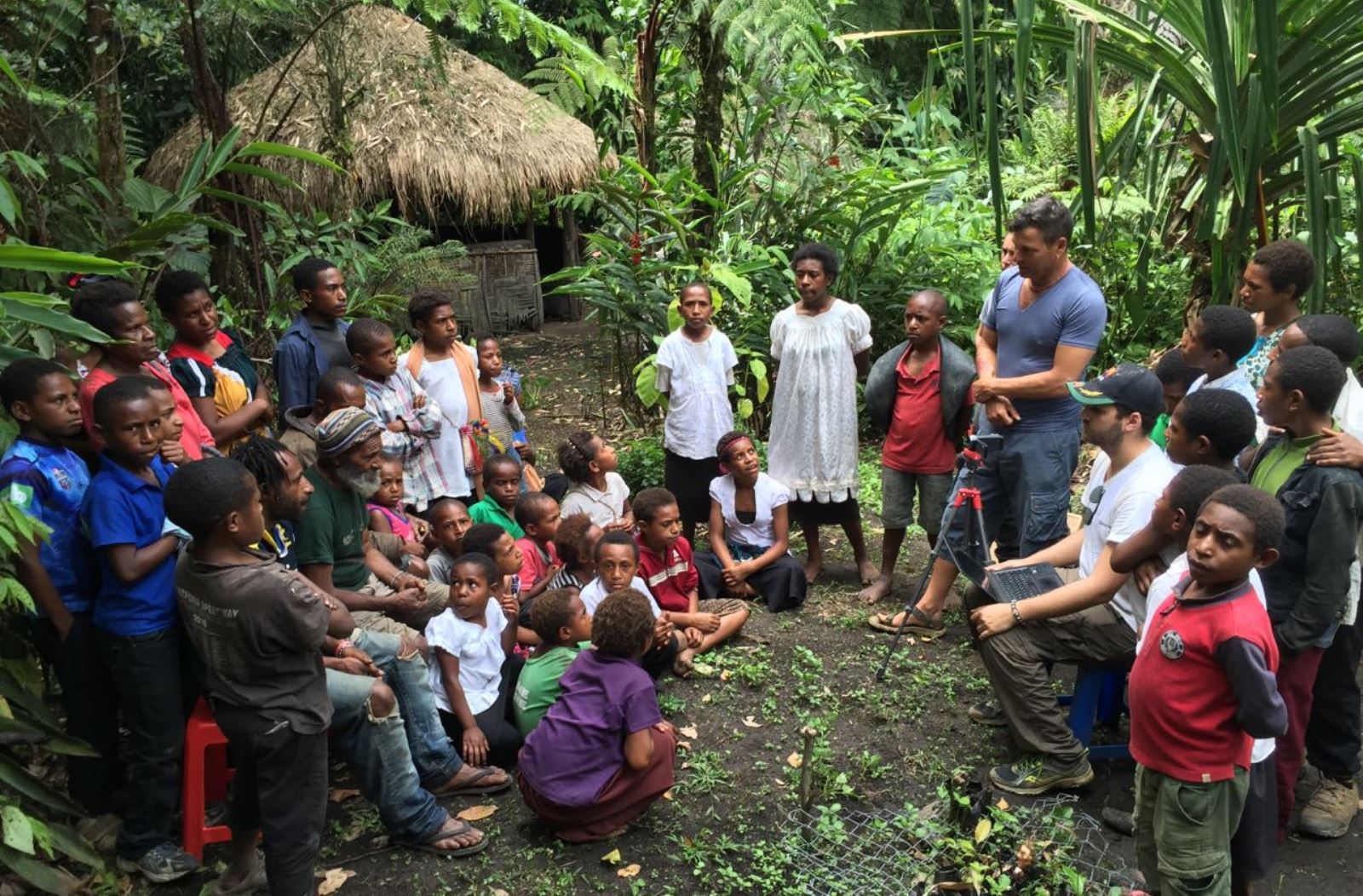
Pro-bono activity is part of the company’s culture. Recently, for example, MyHeritage genealogical detective work resulted in the reunion of brothers separated for 70 years since the Holocaust, one in Canada and one in Israel.
The 260-employee company is headquartered in Or Yehuda, and maintains branches in several other countries.
Based on the positive experience in Papua New Guinea, MyHeritage may send other delegations on altruistic missions.
“We do not think this single drop in the ocean will change the world,” says Levi. “Our goal is to inspire. If we can get a single person to get motivated and do the same thing, even with a simple notebook and smartphone, and send us the information, we will process it. Gradually we want to create a movement of awareness.”
For more information, click here.




